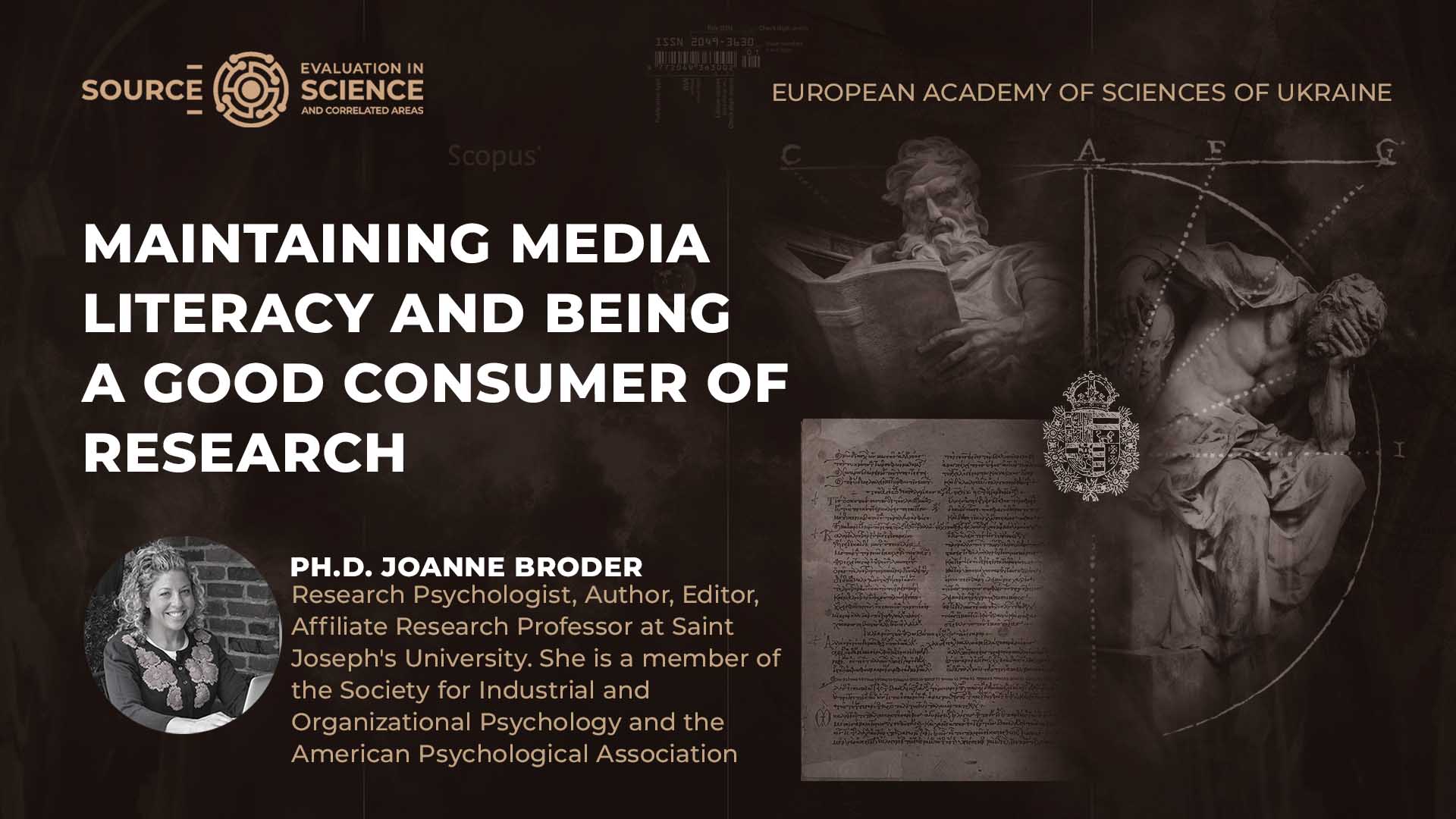Maintaining Media Literacy and Being a Good Consumer of Research

Ph.D. Joanne Broder, Saint Joseph’s University
There are nearly two billion websites on the internet (Internet Live Stats, 2020); accessible from a smartphone and exchanged with 4.4 billion internet users per day (Schultz, 2019) conducting 3.5 billion Google searches per minute, as well as sharing millions of content through social media. Websites publish content that shares facts, blogs, personal testimonials, and range from opinionated jokes to sharing reliable data and news. Since billions of articles are exchanged between billions of people, with the amount of content being posted, highlighted, and shared, how can users distinguish between credible and deceptive sources of information?
Media literacy is the ability to critically evaluate and filter through content found online. It is similar to picking a food, since something can look healthy and delicious on the outside, but could taste unpleasant and contain unhealthy ingredients when the label is read. Like the beautiful picture of food, the title of an article might catch one’s attention and be misleading. Thus, being media literate and a good consumer of research is essential (Broder Sumerson, 2013).
Validate The Author
Anyone can publish something that looks impressive on the internet. The author should be a scholar and/or practitioner in the field. His/her/their credentials can be verified online through other work. Look for past publications and if the author has been cited or quoted in other articles or interviews.
Many authors self-publish and only discuss their opinions without supporting data. Although it may be interesting, they might not share data from well-respected sources to purposely try to impact and confuse the public with their own agenda. Celebrity influencers also do this, by promoting a product, concept, or agenda that that might be harmful to the public.
Assess the Credibility of the Source
The article should come from a website of a blog, journal, magazine, professional forum, newspaper, or an established organization. A twelve-year old could launch an impressive looking website as part of a school project and literally share anything he/she/they want. A person without media literacy might share the content that looks good but lacks accuracy.
When assessing the credibility of a source, investigate their publisher, authors, contributors, and the origin of the data and other facts. Confirm the overall site and content is peer-reviewed.
Evaluate the Source’s Content
Opinionated pieces should be considered for what they are-someone’s opinion, without data to confirm it. The context of the data needs to be shared in detail so the reader can evaluate the generalizability of the study. Empirical research studies should be written up with enough detail that they could easily be replicated. Vague descriptions of methodologies, particularly the data collection process is an area of caution since the absence of transparency could indicate dishonesty within the study.
- Study Context
Who published the study? Studies sponsored and published by organizations tend to show results that support their mission whereas studies from universities might show less bias. The study should also include a purpose statement that explains how the data will be used. Journal articles have literature reviews, which provides the reader with the necessary theoretical perspective and foundation.
- Sample
Who were the voices behind the data? Many researchers will use a convenient homogeneous sample that lacks diversity and attempt to generalize to a global sample. For instance, if the sample mostly consisted of 18 year old Caucasian male college freshman, then the study results are applicable to 18 year old Caucasian male college freshman, as opposed to the entire adult population. The size of the study, with the researchers applying proper sample analyses, such as Cohen’s (1982) power analysis to ensure there are enough participants to properly represent the data. The sample should also be voluntary, anonymous, confidential, and their data should be aggregated with the other results.
- Data Collection Tools
How were the data collected? Standardized data assessments and instruments that have provided evidence of validity and reliability (Messick, 1995) are preferred, but some studies require questions/items (i.e. interview, survey, focus group, questionnaire that have not been previously published or are not accessible. This might require the researcher to create questions/items for the study, but should still go through an abbreviated validation process to confirm the items address the construct as well as are consistently understood by all participants.
- Procedure
How were the data collected? The reader should have a very clear picture of the data collection process. If the study methodology is vague or barely mentioned, could indicate the study lacked robustness or honesty.
Check Facts with Experts
How much are the experts talking about it? Confirm that misinformation is not being spread. Librarians as well as practitioners and scholars are excellent sources to help ensure media literacy. Check the experts’ social media pages, blogs, forums, or websites to see if they are talking about the issue.
Being media literate means never taking a source published on the internet at face value. Knowing the expertise of the author, credibility of the source, quality of the research study, as well as confirmation on the topic from the experts, can help readers be able to evaluate the trustworthiness of online content.
References
Broder Sumerson, J., (2013). Finish Your Dissertation, Don’t Let it Finish You! Wiley: Hoboken, NJ.
Cohen, J., (1982). A power primer. Psychological Bulletin, 112(1), 155-159.
Internet Live Stats (2020). Total Number of Websites. https://www.internetlivestats.com/total-number-of-websites/
Messick, S., (1995). Validity of psychological assessment: validation of Inferences as person’s responses and performances as scientific inquiry into score meaning. American Psychologist, 50(9), 741-749.
Schultz, J., (2019). How much Data is Created on the Internet Each Day? MicroFocus.
Posted on 8/8/19. https://blog.microfocus.com/how-much-data-is-created-on-the-internet-each-day/
